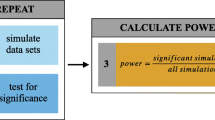Abstract
Arrow’s impossibility result not only had a profound influence on welfare economics, but was, as this paper shows, also widely discussed in philosophy of science and in the engineering design literature.
Similar content being viewed by others
References
Arrow, K. J. ([1951] 1963). Social choice and individual values, 2nd edn. New York: Wiley.
Dym, C. L., Wood, W. H., & Scott, M. J. (2002). Rank ordering engineering designs: Pairwise comparison charts and Borda counts. Research in Engineering Design, 13, 236–242.
Franssen, M. (2005). Arrow’s theorem, multi-criteria decision problems and multi-attribute preferences in engineering design. Research in Engineering Design, 16, 42–56.
Franssen, M., & Bucciarelli, L. L. (2004). On rationality in engineering design. Journal of Mechanical Design, 126, 945–949.
Gaertner, W. (2001). Domain conditions in social choice theory. Cambridge: Cambridge University Press.
Gaertner, W. (2009). A primer in social choice theory (rev ed.). Oxford: Oxford University Press.
Gaertner, W. (2016). Aggregating qualitative verdicts: From social choice to engineering design. Open Journal of Applied Sciences, 5, 319–326.
Gaertner, W., & Wüthrich, N. (2016). Evaluating competing theories via a common language of qualitative verdicts. Synthese, 193, 3293–3309.
Kuhn, Th S. (1962). The structure of scientific revolutions. Chicago: The University of Chicago Press.
Kuhn, Th. S. (1974, 1977). Objectivity, value judgment, and theory choice. In Th. S. Kuhn (Ed.), The essential tension—selected studies in scientific tradition and change (pp. 320–339). Chicago: The University of Chicago Press.
Morreau, M. (2014). Mr. Fit, Mr. Simplicity and Mr. Scope: From social choice to theory choice. Erkenntnis, 79, 1253–1286.
Morreau, M. (2015). Theory choice and social choice: Kuhn vindicated. Mind, 124(493), 239–262.
Okasha, S. (2011). Theory choice and social choice: Kuhn vs. Arrow. Mind, 129(477), 83–115.
Rawls, J. (1971). A theory of justice. Cambridge, MA: Harvard University Press.
Rizza, D. (2014). Arrow’s theorem and theory choice. Synthese, 191, 1847–1856.
Saari, D. G. (1995). Geometry of voting. Heidelberg: Springer.
Samuelson, P. A. (1967). Arrow’s mathematical politics. In S. Hook (Ed.), Human values and economic policy (pp. 41–52). New York: New York University Press.
Scanlon, Th M. (1998). What we owe to each other. Cambridge, MA: Harvard University Press.
Scott, M. J., & Antonsson, E. K. (1999). Arrow’s theorem and engineering design decision making. Research in Engineering Design, 11, 218–228.
Sen, A. (1970). Collective choice and social welfare. San Francisco: Holden-Day.
Sen, A. (1977). On weights and measures: Informational constraints in social welfare analysis. Econometrica, 45, 1539–1572.
Sen, A. (2009). The idea of justice. Cambridge, MA.: Harvard University Press.
Stegenga, J. (2015). Theory choice and social choice: Okasha versus Sen. Mind, 124(493), 263–277.
Strasnick, St. (1976). Social choice and the derivation of Rawls’s difference principle. The Journal of Philosophy, 73, 85–90.
Suppes, P. (1966). Some formal models of grading principles. Synthese, 16, 284–306.
Svensson, L.-G. (1977). Social justice and fair distributions. Lund: Lund University.
Temkin, L. S. (1993). Inequality. Oxford: Oxford University Press.
Weber, M. (2011). Experimentation versus theory choice: A social-epistemological approach. In H. B. Schmidt, D. Sirtes, & M. Weber (Eds.), Collective epistemology (pp. 1–26). Frankfurt: Ontos Verlag.
Acknowledgements
I am very grateful to an anonymous referee and the editor of this journal for several perceptive comments and suggestions.
Author information
Authors and Affiliations
Corresponding author
Rights and permissions
About this article
Cite this article
Gaertner, W. Kenneth Arrow’s impossibility theorem stretching to other fields. Public Choice 179, 125–131 (2019). https://doi.org/10.1007/s11127-018-0503-y
Received:
Accepted:
Published:
Issue Date:
DOI: https://doi.org/10.1007/s11127-018-0503-y




